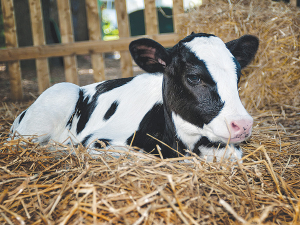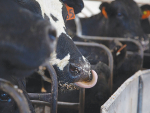Coccidiosis can attack calves from four weeks old, causing scours and can result in death. The disease is prevalent throughout New Zealand and thrives in warm, moist conditions. It often surfaces during periods of stress, like moving or regrouping calves or when calves face reduced immunity.
SealesWinslow nutrition and quality manager Paul Drew says while no vaccine is available for the coccidia parasite that causes the disease, a good nutrition plan can help prevent it and improve calf growth rates.
“Any farmer who has had coccidiosis knows it’s a disease that needs to be avoided,” says Drew.
“A big part of prevention comes down to using a calf feeding programme that includes a coccidiostat fed at the correct daily dose. To reduce the risk, it’s important to keep feeding a meal with coccidiostat until calves have built up their own immunity.”
Maintaining good gut health by encouraging beneficial bacterial development in the calf’s gut through feeding prebiotics and phytobiotics is also important to minimise gut health challenges and reduce scouring, says Drew.
“Calf-rearers should be aiming to get calves onto a good calf feed containing prebiotics and phytobiotics as early as possible to develop good rumen function and gut health.”
Phytobiotics are compounds from herbs and spices. Their extracts help stimulate appetite and offer antimicrobial properties. Prebiotics foster the growth of beneficial microorganisms in the gut to make sure it’s working efficiently.
“Gut health diseases and coccidiosis highlight the need for calf-rearers to get their calves onto a good feed as soon as possible,” says Paul. “It not only helps prevent disease, but it will also help fire up the rumen and get calves to their target weights faster.”
A good feeding plan that graduates calves onto calf muesli or pellets as soon as possible, not only helps fully develop a calf’s rumen, but it also improves digestion and feed efficiency.
“The faster we can develop that rumen, the faster we can get the calf consuming more and fully utilising solid feeds, improving digestion and its daily weight gain,” says Drew.
“This is crucial to meet body weight targets and to the calf’s future productivity.”
While farmers are watching increasing feed costs closely, products like high quality calf muesli and calf pellets mean more energy is available to the calf to achieve growth rates. This means less feed is needed to achieve target weights and help the calf reach its full potential.
“The higher the quality of feed, the better the weight gain,” says Drew. “There are certainly efficiency gains to be had by feeding a higher quality product and providing protein and energy that is more available to the calf.”
Drew explains that using a compound feed like calf pellets with effective starch levels helps fire up the calf’s rumen and drive the development of its absorptive area improving nutrient utilisation.
“Pellets ensure consistency in every bite meaning there’s no chance additives or minerals are lost at the bottom as in the case of a loose blend,” he says.


















